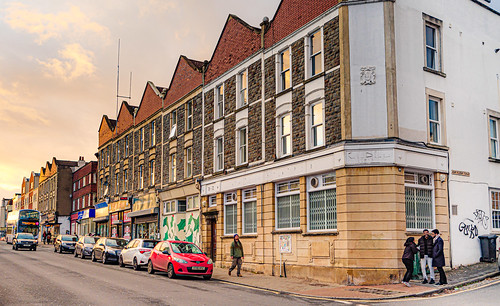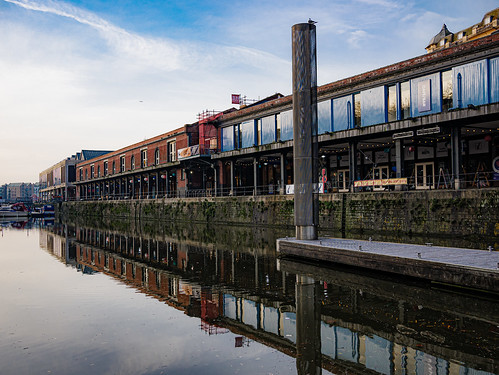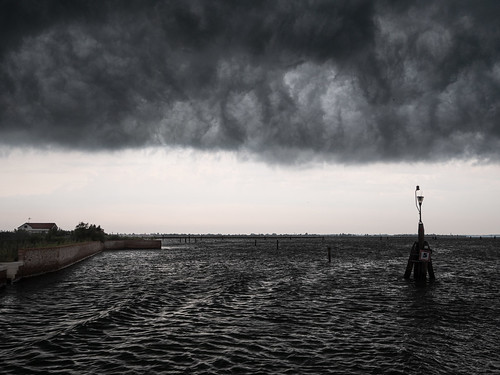Posts by author:
Chris Bertram
In the wake of our disastrous election result, Geoff Robinson on twitter (@GeoffPolHist) linked to this piece I wrote in April 2013 and which I’d forgotten about. I see John Quiggin is recycling too, so that seems to be way of things round here today.
The 1970s have been in my mind over the past few days, not only for the obvious reason, but also because I visited the Glam exhibition at Tate Liverpool last weekend. Not only were the seventies the final decade of an electrical-chemical epoch that stretched back to the late nineteenth-century, they were also the time when the sexual and political experimentation of the 1960s and a sense of being part of a cosmopolitan world order became something for the masses, for the working class, and when the old social order started to dissolve. In the experience of many people, the sixties happened in the seventies, as it were.
But my main thoughts, concerning Britain at any rate, have been about social division, and about some oddly paradoxical features of British life before Thatcher. There’s a very real sense in which postwar British society was very sharply divided. On the one hand, it was possible to be born in an NHS hospital, to grow up on a council estate, to attend a state school, to work in a nationalised industry and, eventually (people hoped), to retire on a decent state pension, living entirely within a socialised system co-managed by the state and a powerful Labour movement. On the other, there were people who shared the experience of the NHS but with whom the commonality stopped there: they were privately educated, lived in an owner-occupied house and worked in the private sector. These were two alternate moral universes governed by their own sets of assumptions and inhabited by people with quite different outlooks. Both were powerful disciplinary orders. The working class society had one set of assumptions – welfarist, communitarian, but strongly gendered and somewhat intolerant of sexual “deviance”; middle-class society had another, expressed at public (that is, private) schools through institutions like compulsory Anglican chapel. Inside the private-sector world, at least, there was a powerful sense of resentment towards Labour, expressed in slogans about “managers right to manage” and so on that later found expression in some of the sadism of the Thatcher era towards the working-class communities that were being destroyed. Present too, at least in the more paranoid ramblings of those who contemplated coups against Labour, was the idea that that the parallel socialised order represented a kind of incipient Soviet alternative-in-waiting that might one day swallow them up.
[click to continue…]
I spent yesterday at a wet-plate collodion workshop. Wet-plate collodion was the process invented by sculptor Frederick Scott Archer in 1851 and, though it became obsolete very quickly, was widely used in the United States to produced cheap tintypes, including during the civil war, and by Julia Margaret Cameron. It was quite a thing to do. First we had to clean our 8 x 10″ plates meticulously using a mix of chalk dust and alcohol and then we practised balancing and moving a marble on the plate so that we’d be ready to spread the collodion suspension acrosse the surface evenly (you tip a pool into the centre and then move it around to coat the plate without going back on yourself). Then the plate gets dipped in a silver compound to make it sensitive and it gets put into a plate holder for a view camera. The view camera (a big beast) is set up and once you are ready to expose the plate you pull on a sheet that blocks the light whilst covering the lens with something (as a makeshift shutter) and then expose for the appropriate length of time. Conditions were poor – overcast, rainy and cold – bad for the chemicals and bad for a process that relies on high levels of UV light, so my portrait (of another class member) here took 35 seconds. And then it is back into the darkroom, pouring on the developer, waiting for the image to appear and then fixing it and washing it (and hoping the delicate emulsion doesn’t just run off down the plughole). It is a direct positive process, but actually you can see the image as positive or negative depending on whether you have a black or white background behind the plate. Great fun! I’ve heard it said that there are more photographs now taken every 5 seconds than during the entire 19th century: I can see why.
I have [another piece on the LRB blog](https://www.lrb.co.uk/blog/2019/november/architecture-of-exclusion) about the deaths of migrants in Essex recently. It was important to register a correction because early information about the nationalities of the dead was incorrect, but it also gives an opportunity to say something more about why migrants have to use people smugglers if they want to escape persecution or seek out opportunities in wealthy democracies.
Not everyone who is a sceptic about the benefits of migration is a nativist. On the contrary, many progressive opponents of migration cite the harm that is done when people leave poor countries to make better lives in wealthy ones. The grounds for their opposition vary, but two particulary common reasons given are climate change and brain drain. Here, for example, is Rupert Read, philosopher and Extinction Rebellion spokesperson, [writing in The Ecologist in 2014](https://theecologist.org/2014/jun/19/love-immigrants-rather-large-scale-immigration):
>There must be absolutely no compromise whatsoever on the humanity and rights of immigrants, and on our responsibility to welcome and help to integrate those who are here. But we ought to accept the power of the reasoning that shows that a high level of immigration leads to significant problems – here, abroad, and in the future. It …increases  net environmental footprint – people migrating here whether from Estonia or East Africa suddenly jump their footprint dramatically: this is bad news of course for all things ecological / for future generations.
Other writers, two numerous to mention here, are worried about “brain drain” and the decision of wealthy professionals to take their skills, often developed at the state’s expense, to rich countries when there are so many people locally who need doctors, nurses, teachers and hedge-fund managers.
[click to continue…]
Yesterday morning, 39 migrants, now revealed to be Chinese nationals, were discovered dead in a transport container in Essex, England. Politicians were not slow to give their opinions about who was responsible, even though it is on ongoing murder investigation. [I have a short piece on this case](https://www.lrb.co.uk/blog/2019/october/contempt-for-human-life) at the London Review of Books blog.
I went to see occasional Timberite Astra Taylor’s remarkable film *What is Democracy?* last night. It takes us from Siena, Italy to Florida to Athens and from Ancient Athenian democracy through the renaissance and the beginning of capitalism to the Greek debt crisis, occupy and the limbo life of people who have fled Syria and now find themselves stuck. It combines the voices of Plato and Rousseau with those of ordinary voters from left and right, Greek nationalists and cosmopolitans, ex-prisoners, with trauma surgeons in Miami, Guatemalan migrants in the US, with lawmakers and academics, and with refugees from Syria and Afghanistan. All the while it poses the questions of whether democracy is compatible with inequality and global financial systems and the boundaries of inclusion.
Some of the testimonies are arresting: the ex-prisoner turned barber who tells us of his nine years in a US prison of a hunger strike when the authorities tried to take the library away and of his problems adjusting to life of the outside, to being around women, and the fact that he’s denied the vote. And all the time he’s telling you this with attention and passion he’s clipping a customers beard, which adds a note of tension. We hear from trauma surgeons who tell us of the levels of violence in Miami – so much blood that the city is used for training by medics from the US military – and the shock of cycling from one neighbourhood to the next and experiencing swift transitions from opulence to utter destitution. We hear from a young Syrian woman who relates how she had to leave Aleppo after her mother was wounded by a stray bullet in her own home and whose idea of democracy is a country where she can lie safely in her bed.
[click to continue…]
From yesterday’s march.Tragically, the UK now is probably the member state with largest group of people who are enthusiastic about being part of the EU, and are critically aware of its shortcomings (as this placard tells us). Not a great photograph, but a record of an event. [Dipper and Stephen are banned from commenting on my threads.]









